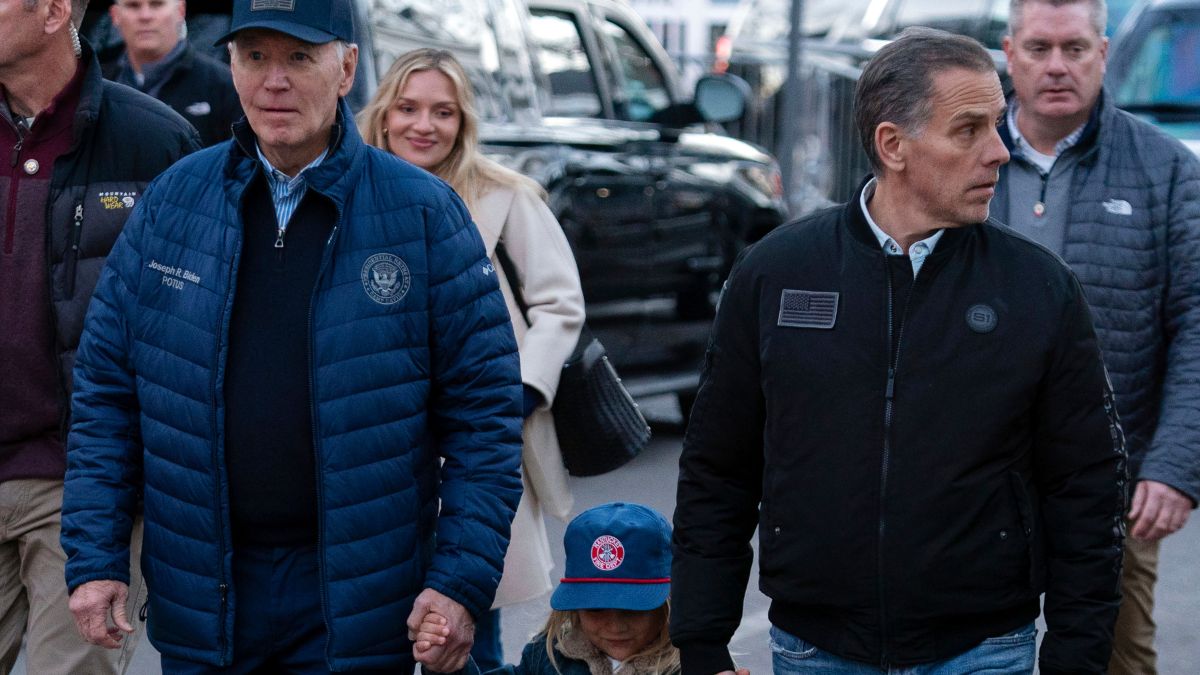United States President Joe Biden’s presidential pardon for his son, Hunter, has stirred controversy. His decision comes after he had repeatedly ruled out such a move. Hunter Biden was facing sentencing for two criminal cases: federal tax and gun ownership.
Defending his son, the outgoing US president said, “No reasonable person who looks at the facts of Hunter’s cases can reach any other conclusion than Hunter was singled out only because he is my son – and that is wrong.” He also claimed the charges against his son were politically motivated.
Biden’s contentious step has put the spotlight on pardoning powers that presidents have.
Let’s take a closer look.
Indian presidents’ pardoning powers
In India, presidents have mercy or clemency power. They along with governors are empowered by the Constitution to grant mercy.
Article 72 states, “The President shall have the power to grant pardons, reprieves, respites or remissions of punishment or to suspend, remit or commute the sentence of any person convicted of any offence,” where the punishment or sentence is by a court-martial, the cases where sentence is death penalty, and “in all cases where the punishment or sentence is for an offence against any law relating to a matter to which the executive power of the Union extends”.
It also says that a President’s power will not affect the Governor’s authority to suspend, remit or commute a death sentence.
Article 161 gives pardoning powers to the Governors. It says that the Governor can “grant pardons, reprieves, respites or remissions of punishment or to suspend, remit or commute the sentence of any person convicted of any offence against any law relating to a matter to which the executive power of the State extends.”
The Indian President does not have unchecked pardoning powers, unlike their US counterparts. The president has to act as per the Union Cabinet’s advice.
As Indian Express noted, Rashtrapati Bhawan forwards the mercy petition to the Home Ministry, seeking consultation from the Cabinet. The Ministry of Home Affairs (MHA) then sends it to the concerned state government and depending on this reply, it draws up its advice on behalf of the Council of Ministers.
The Supreme Court has pressed on this rule in several cases, saying that the President cannot independently exercise her power when deciding on mercy petitions. She has to consult the appropriate government.
Article 74(1) of the Constitution empowers the President to ask the Council of Ministers to reconsider their advice once. However, if they do not suggest any change, the President “shall act in accordance with the advice tendered after such reconsideration.”
As per a Factly report in 2017, more than 1,000 mercy petitions were disposed of in each of the 30 years post Independence — 1948-1954, 1955-1964 and 1965-1974. The report also found that the number of mercy pleas filed and disposed of significantly reduced after 1974.
For example, during 1995-2006, just nine mercy pleas were disposed of by the President.
US Presidents’ pardoning powers
The US Constitution gives the President the “power to grant reprieves and pardons for offences against the United States, except in cases of impeachment”.
The US Supreme Court has ruled that this power is “granted without limit” and cannot be hindered by the Congress.
However, it is not an absolute sweeping power. The President can grant clemency only for federal (national-level) crimes.
The pardoning power does not apply to state crimes. Those who get a pardon from the US President can still be tried under the states’ respective laws.
ALSO READ: Climate action, aid for Ukraine: Why the last days of the Biden presidency matter
Pardons by other US presidents
Biden’s “full and unconditional pardon” for his son covers any potential federal crimes that Hunter may have committed during the period of January 2014 to December 2024, reported BBC.
He is not the first US president to issue a pardon for near and dear ones.
In 2020, Republican leader Donald Trump pardoned Charles Kushner, the father-in-law of his daughter Ivanka Trump, who was sentenced to two years in prison in 2004 on several charges, including tax evasion.
President-elect Trump has now named Charles Kushner the next US ambassador to France.
In 2001, Bill Clinton pardoned his younger half-brother, Roger Clinton, who spent a year in prison on drug charges. He had sold cocaine to an undercover police officer, as per The Washington Post.
With inputs from agencies


)

)
)
)
)
)
)
)
)



